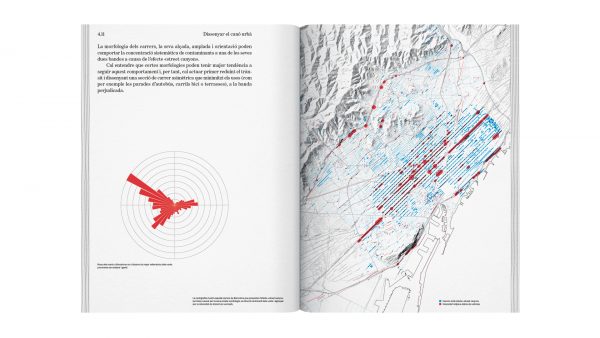The research carried out in the project Nocturnal Landscapes: Urban Flows of Global Metropolises, curated by Iker Gil and organized by MAS Context, has materialized in a publication that collects the contents of the project’s exhibition in Chicago as well as new ones.
Nocturnal Landscapes: Urban Flows of Global Metropolises is a project that observes and analyzes cities at night from an interdisciplinary perspective. We have used data about urban life to compare the rhythms and regions of global cities through cartographic representations. The maps and graphics generated are complemented by the photographs of David Schalliol, photographer and sociologist, questioning the correlation of human activity and light, and revealing hidden aspects of our cities.

